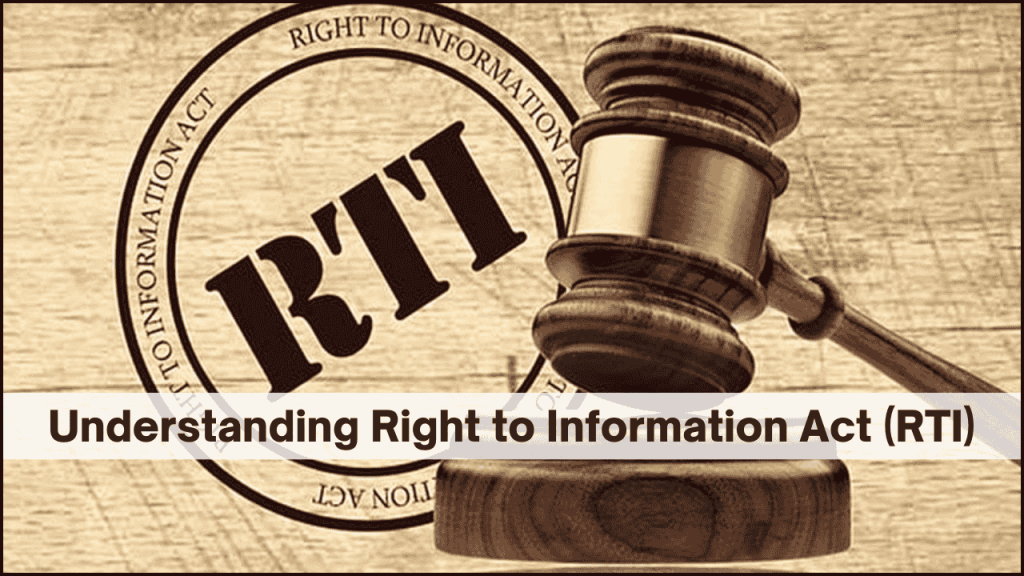
The Right to Information (RTI) Act represents one of the most significant legislative milestones in India’s journey toward transparent governance. Enacted in 2005, this powerful tool has transformed the relationship between citizens and government by creating a formal channel for obtaining information from public authorities. Let me walk you through this important regulation, its implementation in Tamil Nadu, and how you can use it effectively.
What is the Right to Information Act?
The RTI Act 2005 (Central Act 22 of 2005) establishes a practical mechanism allowing citizens to request information from government bodies. At its core, the law is built on the principle that democracy functions best when citizens have access to information about how they are governed. This Regulation mandates timely responses to information requests, creating accountability across all levels of government.
The Act covers all public authorities at central, state, and local levels. These include government departments, public sector companies, and even non-governmental organizations that receive substantial government funding.
How the RTI System Works in Tamil Nadu?
The Tamil Nadu Dr.Ambedkar Law University serves as an excellent example of how RTI mechanisms are implemented at the institutional level. The university has established a clear structure for handling information requests:
Key Officials and Their Roles
- Public Information Officer (PIO): The primary point of contact for RTI applications is Capt. Dr. D. Jaisankar. The PIO is responsible for receiving requests and providing timely responses.
- Assistant Public Information Officer: Ms. A. Niranjanaa, Assistant Professor, serves in this supporting role to help process applications.
- Appellate Authority: The Registrar of the university serves as the authority to whom appeals can be made if information requests are denied or inadequately addressed.
Submitting an RTI Application: A Step-by-Step Guide
If you wish to request information from The Tamil Nadu Dr. Ambedkar Law University or any other public authority, follow these steps:
- Prepare your application: Draft a clear, concise request specifying exactly what information you seek. Be specific to avoid ambiguity.
- Application fee payment: Attach the mandatory fee of Rs. 10 through one of these methods:
- Demand Draft
- Indian Postal Order
- Court Fee Stamp affixed to the application
- Submit your application: Send your completed form to: Public Information Officer The Tamil Nadu Dr. Ambedkar Law University “Poompozhil”, No: 5, Dr. D.G.S. Dinakaran Salai Chennai – 600 028
- Follow up: Note your application reference number for tracking purposes. The PIO must respond within 30 days from the date of receiving your application.
What Makes the RTI Act Powerful?
The true strength of the RTI Act lies in several key provisions that ensure its effectiveness:
- Time-bound responses: Public authorities must provide requested information within 30 days (or 48 hours in matters concerning life and liberty).
- Penalties for delays: Officials face personal penalties of Rs. 250 per day (up to Rs. 25,000) for unjustified delays or refusals.
- Limited exemptions: While certain information related to national security, personal privacy, and cabinet papers may be exempt, these exceptions are narrowly defined.
- Proactive disclosure: Section 4 of the Act requires public authorities to proactively publish certain categories of information, reducing the need for formal applications.
RTI Fee Structure in Tamil Nadu
The Tamil Nadu Right to Information (Fees) Rules, 2005, and subsequent amendments (referenced in G.O.Ms.No.989) establish the fee structure for RTI applications in the state:
- Application fee: Rs. 10
- Cost of providing information:
- Printed/photocopied documents: Rs. 2 per page
- Information on larger formats (maps, plans): Actual cost
- Inspection of records: First hour free, Rs. 10 for each subsequent hour
- Information provided on electronic media: Actual cost
Notably, individuals below poverty line are exempt from paying any fees when seeking information.
Practical Impact of RTI
The RTI Act has proven transformative across various domains:
- Exposing corruption: Citizens have uncovered misappropriation of funds and irregularities in government programs.
- Improving service delivery: Applications regarding delays in passports, pensions, and other services often result in expedited processing.
- Environmental protection: RTI has helped reveal violations of environmental regulations and illegal land use.
- Enhancing accountability: The mere possibility of information disclosure has improved decision-making processes in public institutions.
Challenges and Limitations
Despite its strengths, RTI implementation faces several challenges:
- Backlogs and delays: Many departments struggle with large volumes of applications, leading to delayed responses.
- Reluctant officials: Some public authorities resist disclosure, providing incomplete or vague information.
- Threats to activists: In extreme cases, RTI activists have faced harassment or worse for exposing sensitive information.
- Technical barriers: Complex filing procedures may discourage citizens with limited educational backgrounds.
Making the Most of RTI
To maximize the effectiveness of your RTI applications:
- Be specific: Frame questions precisely to avoid receiving ambiguous responses.
- Know the exemptions: Understand what information can and cannot be requested.
- Use the appeal process: If unsatisfied with the response, file a first appeal with the designated appellate authority.
- Join RTI communities: Connect with experienced users who can guide you through the process.
Final Thoughts
The Right to Information Act stands as a testament to India’s commitment to democratic values and citizen empowerment. By providing a structured mechanism for information access, it has significantly altered the power dynamic between citizens and the state. Whether you’re seeking personal records, investigating policy implementation, or holding public authorities accountable, RTI offers a powerful tool for exercising your democratic rights.
The details provided about The Tamil Nadu Dr. Ambedkar Law University’s RTI implementation illustrate how this national legislation takes practical shape at the institutional level. By understanding and utilizing this framework, citizens can play an active role in ensuring transparency and accountability in governance.